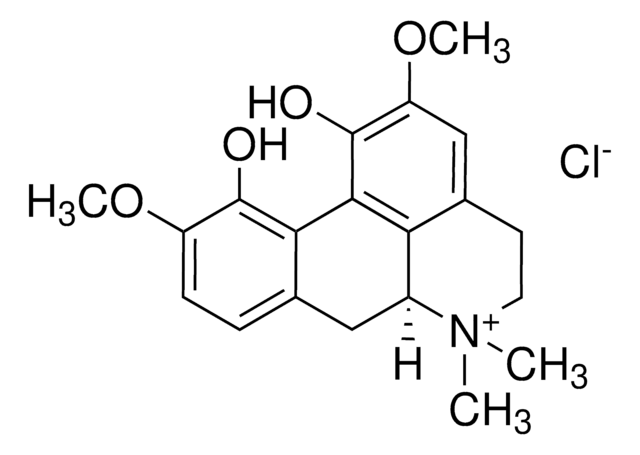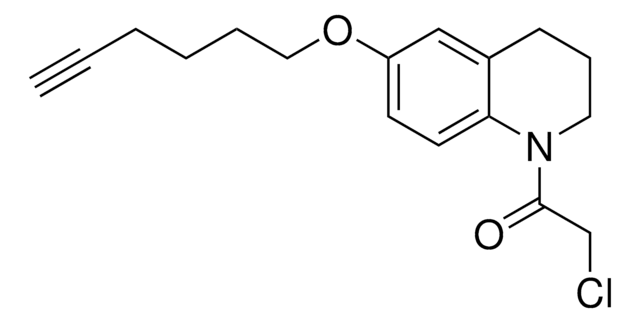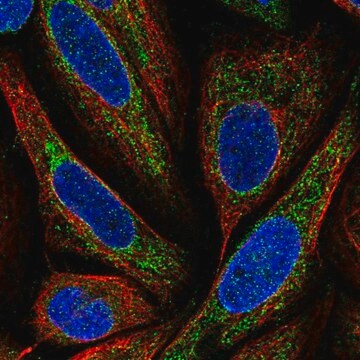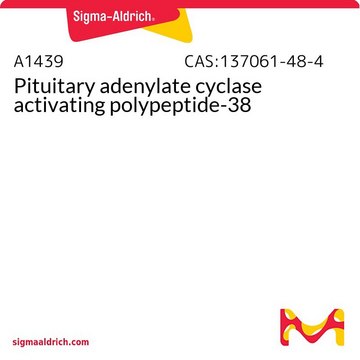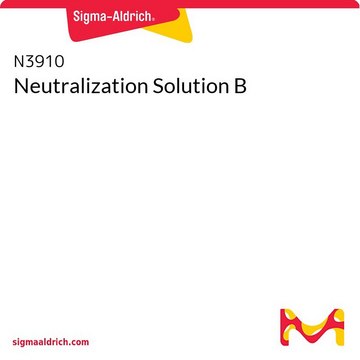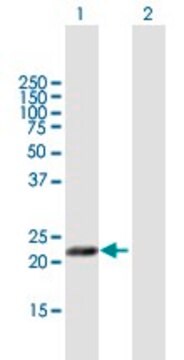PZ0362
CP-640186 hydrochloride
≥95% (HPLC)
Sinónimos:
(3R)-Anthracen-9-yl-[3-(morpholine-4-carbonyl)-[1,4′]bipiperidinyl-1′-yl]-methanone hydrochloride, CP 640186 hydrochloride, CP640186 hydrochloride, [(3R)-1′-(9-Anthracenylcarbonyl)[1,4′-bipiperidin]-3-yl]-4-morpholinyl-methanone hydrochloride
About This Item
Productos recomendados
Nivel de calidad
Ensayo
≥95% (HPLC)
Formulario
powder
condiciones de almacenamiento
desiccated
color
white to beige
solubilidad
H2O: 2 mg/mL, clear (warmed)
temp. de almacenamiento
room temp
cadena SMILES
O=C(C1=C2C=CC=CC2=CC3=CC=CC=C31)N(CC4)CCC4N5C[C@H](C(N6CCOCC6)=O)CCC5.[H]Cl
InChI
1S/C30H35N3O3.ClH/c34-29(32-16-18-36-19-17-32)24-8-5-13-33(21-24)25-11-14-31(15-12-25)30(35)28-26-9-3-1-6-22(26)20-23-7-2-4-10-27(23)28;/h1-4,6-7,9-10,20,24-25H,5,8,11-19,21H2;1H/t24-;/m1./s1
Clave InChI
DUBNXJIOBFRASV-GJFSDDNBSA-N
Aplicación
Acciones bioquímicas o fisiológicas
Código de clase de almacenamiento
11 - Combustible Solids
Clase de riesgo para el agua (WGK)
WGK 3
Elija entre una de las versiones más recientes:
Certificados de análisis (COA)
It looks like we've run into a problem, but you can still download Certificates of Analysis from our Documentos section.
Si necesita más asistencia, póngase en contacto con Atención al cliente
¿Ya tiene este producto?
Encuentre la documentación para los productos que ha comprado recientemente en la Biblioteca de documentos.
Nuestro equipo de científicos tiene experiencia en todas las áreas de investigación: Ciencias de la vida, Ciencia de los materiales, Síntesis química, Cromatografía, Analítica y muchas otras.
Póngase en contacto con el Servicio técnico
